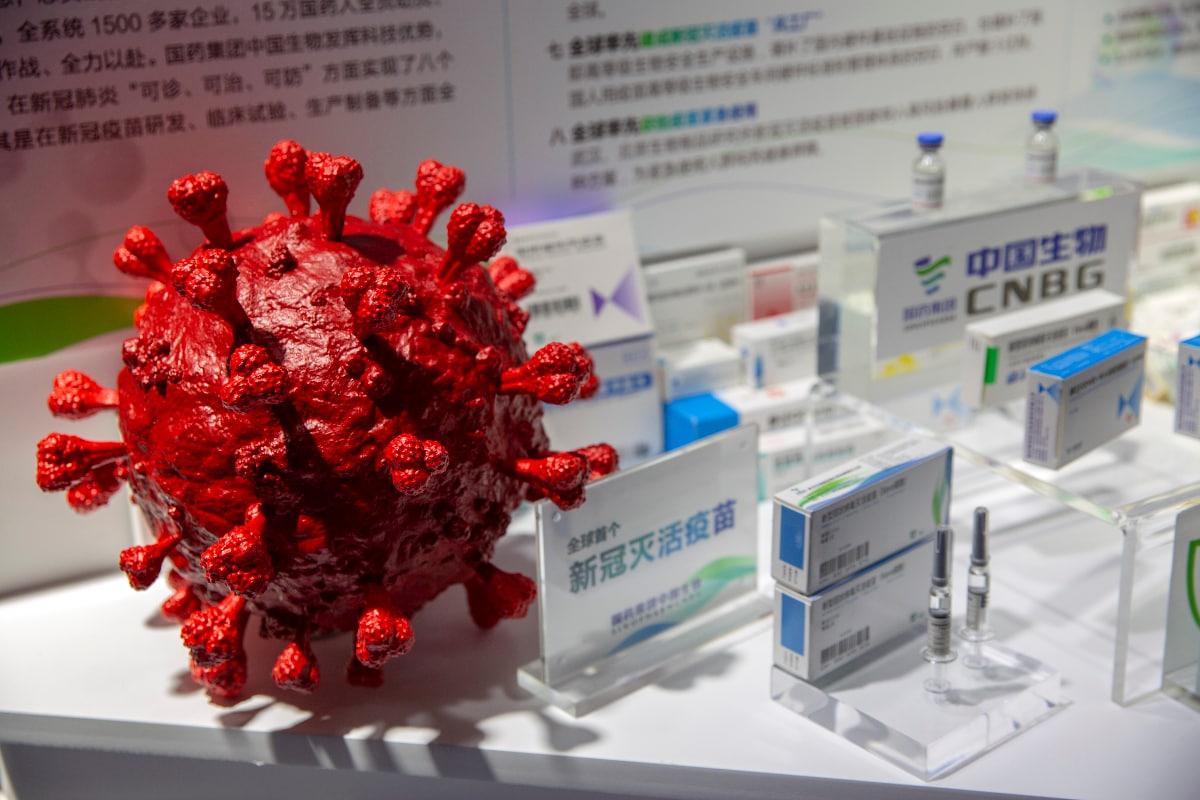
The race to obtain regulator approval for the launch of the vaccine has entered its final stretch in India and the government is beefing up plans to immunize 30 million high-risk people in phase 1.
Amid these developments, India and South Africa, backed by other low-income and developing countries, are pushing for a temporary exemption of patents and intellectual property rights for COVID-19 drugs, vaccines, diagnostics and technologies. Exemption from certain provisions of the multilateral TRIPS (Trade-Related Aspects of Intellectual Property Rights) agreement dating from 1995 has been requested.
drugs, vaccines, diagnostics and technologies. Exemption from certain provisions of the multilateral TRIPS (Trade-Related Aspects of Intellectual Property Rights) agreement dating from 1995 has been requested.
The two countries presented their proposal on the issue on October 2 to the World Trade Organization (WTO) and on Thursday they will continue important discussions before the WTO General Council hears a final call.
What is the proposal that India and South Africa have presented?
The proposal seeks an exemption from the implementation of certain sections of the TRIPS agreement that relate to intellectual property rights (IPR), patents, trade secrets and copyrights in the broader interest of COVID-19 , allowing countries to access medicines, vaccines, medical diagnostics and technologies at affordable prices.
, allowing countries to access medicines, vaccines, medical diagnostics and technologies at affordable prices.
Specifically, the two countries have submitted this proposal to the Council for TRIPS and asked it to recommend the proposal to the General Council of the WTO. The TRIPS Agreement was enforced in 1995, a multilateral agreement on intellectual property that governs the rules to protect and enforce all forms of IPR. The agreement has a great influence on access to medicines, especially in low-income countries and the developing world.
The proposal stated that the exemption should be in effect until the majority of the world’s population develops immunity against the novel. coronavirus and until there is widespread inoculation. The proposal also highlighted that intellectual property rights were hindering or potentially hampering timely access to affordable medicines. They also noted delays in the manufacture of medicines and vaccines due to certain provisions of the TRIPS Agreement.
and until there is widespread inoculation. The proposal also highlighted that intellectual property rights were hindering or potentially hampering timely access to affordable medicines. They also noted delays in the manufacture of medicines and vaccines due to certain provisions of the TRIPS Agreement.
The TRIPS Council must consider the waiver request within 90 days and then submit a report to the ministerial conference, which is the highest decision-making body made up of all WTO members, for a decision.
What did India say during the last meeting on the subject?
me?
During the TRIPS Council meeting on October 16, India said the joint proposal was important to those with insufficient or no manufacturing capabilities of the medical devices needed to combat COVID-19 crisis. He listed India’s contributions in supplying medical supplies and equipment needed to fight the pandemic and said it resisted attempts by few countries to grab supplies.
crisis. He listed India’s contributions in supplying medical supplies and equipment needed to fight the pandemic and said it resisted attempts by few countries to grab supplies.
He further asserted that intellectual property rights were a barrier to equitable access to treatments and vaccines and cited the example of lawsuits filed by private companies for infringement of intellectual property rights in COVID-19 products and the limitations that intellectual property rights pose to increase the production of reagents, test kits and other essential diagnostics.
products and the limitations that intellectual property rights pose to increase the production of reagents, test kits and other essential diagnostics.
The Indian delegates also noted that the joint proposal specifically sought an exemption from the sections relating to intellectual property rights, patents, copyrights and trade secrets because products such as test kits, masks, drugs, vaccines and ventilator components are covered. for them. They also tried to ensure that the exemption being requested was for a limited period.
Who supports it and who is against it?
India, South Africa, Kenya and Eswatini are co-sponsors of the proposal. Countries that fully support the proposal include Argentina, Bangladesh, Pakistan, Sri Lanka, Tunisia, Venezuela, Egypt, Indonesia, Mali, Mauritius, Mozambique, and Nicaragua. Chad, China, Chile, Colombia, Costa Rica, Ecuador, El Salvador, Jamaica, Africa, the Caribbean and Pacific Negotiating Group, Nigeria, the Philippines, Senegal, Turkey and Thailand welcomed and supported further discussions on the proposal.
While Australia, Brazil, Canada, the European Union, Japan, Norway, Switzerland, the United Kingdom and the United States opposed. The World Health Organization has supported the proposal and so have more than 300 civil society organizations, including among them; MSF, Peoples’ Health Movement and Third World Network.
Has IPR treatments been hindered during the pandemic and has there been precedent for waivers?
Médecins Sans Frontières (Doctors Without Borders), the global non-governmental organization, cited the example of how Gilead’s drug Remdesivir, which has been widely used against Coronavirus worldwide, it has been in short supply in some countries. MSF said governments have faced intellectual property barriers in the Remdesivir case and have faced shortages of the drug. This was also seen in Indian cities. He said Gilead signed deals with select manufacturers that raised barriers to accessing the drug.
worldwide, it has been in short supply in some countries. MSF said governments have faced intellectual property barriers in the Remdesivir case and have faced shortages of the drug. This was also seen in Indian cities. He said Gilead signed deals with select manufacturers that raised barriers to accessing the drug.
“Regarding the benefits of an exemption, if there is a drug or a product for COVID-19 , it can be done using domestic capacities at lower costs. When it comes to vaccines, patents and trade secrets are barriers and governments are obliged to follow laws on the subject. Second, exemptions can also encourage innovation in the absence of patents and enable and expedite the production of low-cost alternatives, ”said KM Gopakumar, legal advisor for Third World Network.
, it can be done using domestic capacities at lower costs. When it comes to vaccines, patents and trade secrets are barriers and governments are obliged to follow laws on the subject. Second, exemptions can also encourage innovation in the absence of patents and enable and expedite the production of low-cost alternatives, ”said KM Gopakumar, legal advisor for Third World Network.
In 2001, WTO Members adopted the Doha Declaration to combat the crisis of unequal access to HIV / AIDS drugs in the poorest and developing countries. The declaration allowed countries to relax patent laws for the production of generic alternatives to expensive drugs, which are essential to fight HIV / AIDS and malaria. The combination of drugs used against HIV cost $ 10,000 at one time, which was out of reach for thousands of people. In South Africa, a movement emerged to break the monopolies of pharmaceutical companies on these drugs. This movement led to a broader global dialogue and deliberation on the issue of generics.
.